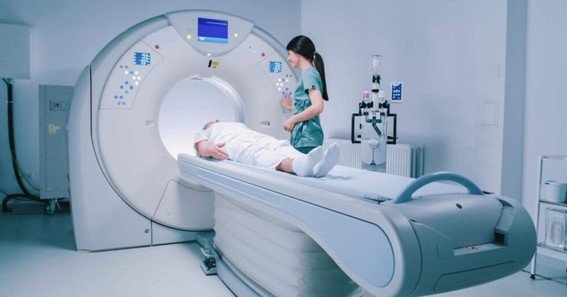CT scans with contrast are a common diagnostic tool used to detect various medical conditions, but without insurance, the cost can be a concern for many. Understanding how much a CT scan with contrast without insurance will cost is essential to help you budget and explore options for affordable healthcare. In this article, we’ll cover the cost factors, average prices, and ways to make these necessary scans more affordable.
What is the Average Cost of a CT Scan with Contrast Without Insurance?
The average price of a CT scan without insurance can range from $500 to $3,000, depending on several factors. A CT scan with contrast tends to be more expensive than one without contrast, as it includes an injectable dye to enhance imaging clarity. Without insurance, this added component typically increases the overall price by several hundred dollars.
Here’s a general breakdown of what you might expect:
- Basic CT Scan (No Contrast): $300 – $1,500
- CT Scan with Contrast: $500 – $3,000
Key Factors That Affect the Cost of a CT Scan with Contrast
Several variables can influence the cost of a CT scan with contrast without insurance. Here are some of the primary factors:
- Location and Facility Type: Hospital CT scan pricing without insurance is often higher than independent imaging centers or outpatient facilities.
- Body Area Scanned: The cost can vary based on which part of the body is being scanned, with complex areas like the abdomen or chest being more expensive.
- Technology and Equipment Used: Some facilities may use advanced imaging equipment, which can increase the cost.
- Radiologist Fees: In addition to the scan itself, there is usually an interpretation fee from a radiologist, which can add to the total cost.
- Additional Services: Some scans may include other tests or follow-up procedures, which contribute to the final out-of-pocket CT scan cost.
Affordable CT Scan Without Insurance: Tips to Lower Your Costs
If you’re paying out of pocket, there are options to make a CT scan with contrast self-pay cost more affordable:
- Shop Around for Prices: Different facilities offer varying prices, and imaging centers are often more affordable than hospitals.
- Ask About Discounts for Self-Pay: Many centers offer discounts for patients without insurance.
- Check for Community Health Clinics: Some community or non-profit clinics provide discounted imaging services.
- Consider Payment Plans: Some facilities offer payment plans that let you pay in installments.
Understanding CT Scan Self-Pay Options
Self-pay options are designed to help patients manage medical expenses without relying on insurance. These include CT scan self-pay options, where facilities offer discounted rates or payment plans. Comparing prices and asking facilities about their self-pay rates can help you find an affordable CT scan without insurance.
FAQ
- How much is a CT scan with contrast without insurance?
- The cost can vary widely, typically between $500 and $3,000 depending on factors like location, facility, and body area being scanned.
- Why is a CT scan with contrast more expensive?
- A CT scan with contrast includes a special dye injected before the scan to enhance image quality, which requires additional materials and processing.
- Can I get a CT scan without insurance for an affordable price?
- Yes, many imaging centers and some hospitals offer discounts for self-pay patients or may provide payment plans to help manage costs.
- Where can I find the best CT scan pricing without insurance?
- Prices are often lower at independent imaging centers and outpatient facilities compared to hospitals. Comparing prices from different providers can help.
- Are there alternative ways to cover CT scan expenses without insurance?
- Some healthcare providers and community clinics offer financial assistance programs. Certain healthcare financing options, like medical credit cards, may also help spread out the costs.
Understanding how much a CT scan with contrast without insurance will cost and knowing the options available to lower expenses can be a huge relief when managing medical needs. With a bit of research and comparison, you can find a solution that fits your budget and still receive the important diagnostic care you need.










